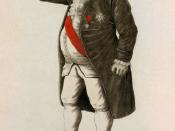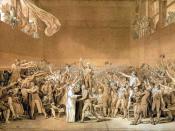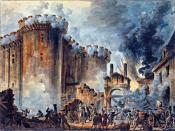The French Revolution (1789-99) violently transformed France from a monarchical state with a rigid social hierarchy into a modern nation in which the social structure was loosened and power passed increasingly to the middle classes.
CAUSES
There is considerable controversy over the causes of the Revolution. Marxist scholars emphasize material factors: as the population increased, food supplies grew short; land had become divided into such small parcels that most Frenchmen lived close to the subsistence level; and after 1776 agricultural recession forced property owners to exploit their sources of revenue. Marxists also maintain that commercial prosperity had stimulated the growth of a monied middle class that threatened the position of the established landed aristocracy. Other social historians emphasize the importance of the growing discrepancy between reality and the legally defined social structure, which distinguished men by hereditary or acquired rank and recognized corporate rather than individual rights. They also emphasize, however, the complexity of French society and question the importance of capitalism.
Political historians usually regard the weakness of the monarchy as a crucial factor. Nominally, the benevolent Louis XVI (r. 1774-92) was the absolute ruler of a united country. Actually, so many rights, or privileges, were retained by provinces, towns, corporate bodies, the clergy, and the nobility that the king had little freedom of action. Moreover, since offices in the legal and administrative system--and the noble rank that went with them--could be purchased and bequeathed as property, a new aristocracy of ennobled officials had developed. These men were able to monopolize profitable employment, to frustrate royal reforms, and to prevent the monarchy from raising taxes to meet the ever-increasing costs of government and of war. Some writers contrast the arbitrariness of the old regime with the desire, stimulated by the Enlightenment and the example of America, for reforms and...


